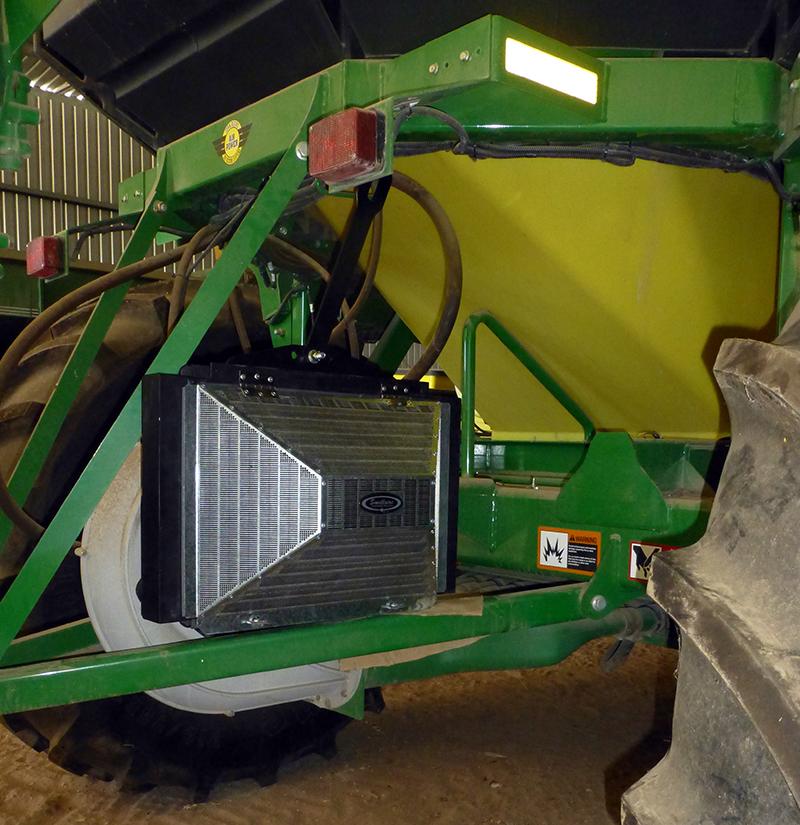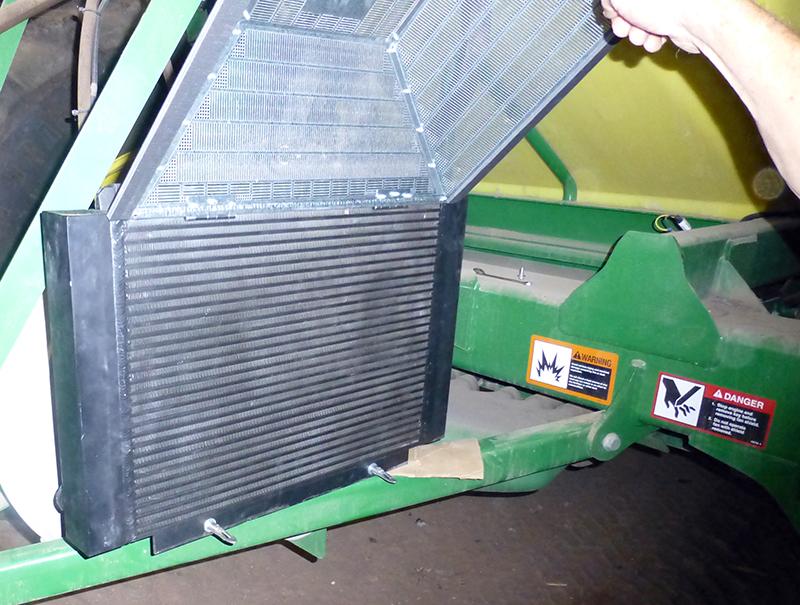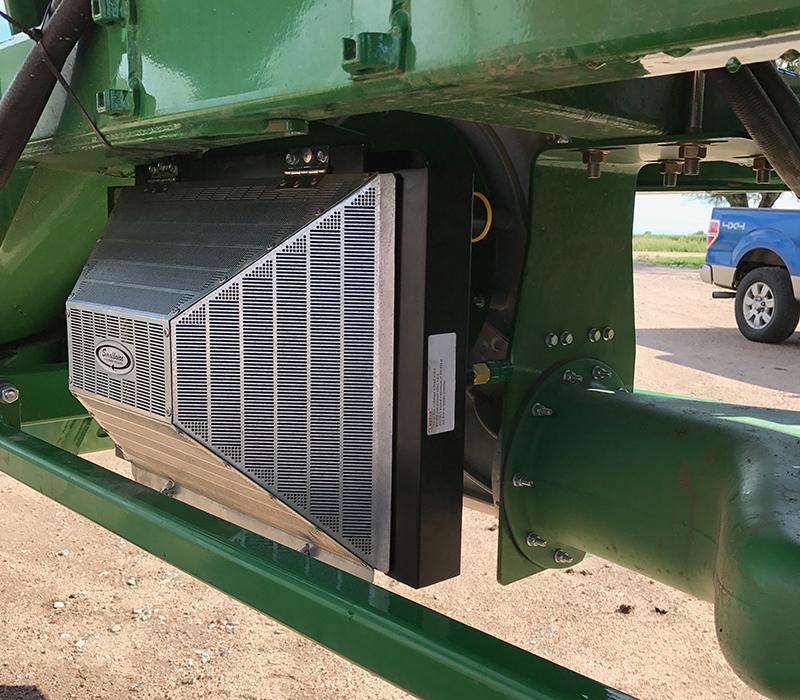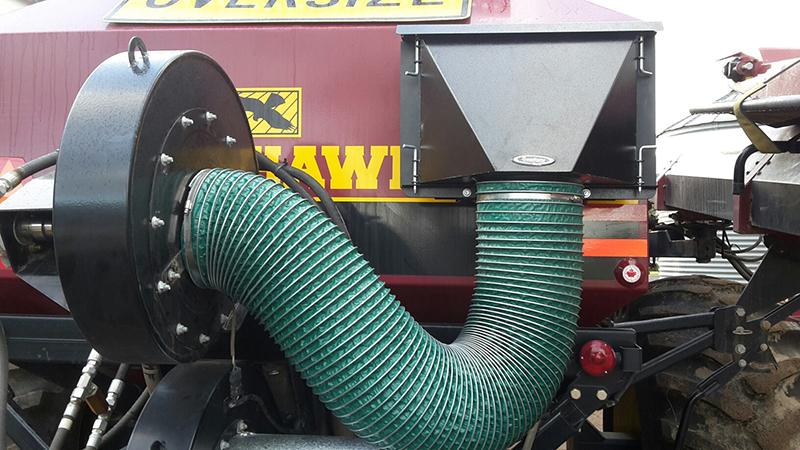Quite a few people have trouble with oil overheating on their air drills (and even if it’s not overheating to the extent of shutting down the tractor, high temps break down hydraulic oil faster, and shorten the life of pumps, seals, etc — you really want it to stay below 150 F). Here are some ways to keep hydraulic oil cool.
1) If you’re running a late-model JD tractor that has Power Beyond pulling a JD air drill, Deere will often update the drill to make use of the Power Beyond so that less oil is flowing to the meter rolls and rockshaft (down-pressure) circuit. However, this may not completely solve the problem of oil getting overly warm.
For other brands of tractors, if there’s an extra SCV remote available, you can ‘T’ two remotes together for the rockshaft circuit. One remote is set to supply max flow for 5 seconds when raising and lowering, but otherwise is shut down. The second remote supplies a constant low flow of oil to keep pressure on the rockshaft during field operation.
Install an oil cooler. There are plenty of farmer-built hydraulic oil coolers out there (in Australia, everyone runs them). But you can go one step further: instead of merely venting that heat into the atmosphere, you can use it to warm & dry the air going thru the air delivery system — this has the advantage of reducing moisture in the lines, and helping to eliminate gunk buildup from fertilizer dust and seed treatments.
For a robust “heat exchanger” that’s designed specifically for this, check out our Smallaire unit. Fits all JD 1910 TBH carts (fits some TBT JD 1910s with minor modifications). A new version with a flexible duct is also becoming available, and this allows the unit to be mounted anywhere on the drill (the flexible duct connects it to the intake of the fan). We don’t keep many, and it takes ~ 4 wks to get them in from Australia, so plan accordingly. Don’t let yourself be sidelined in the heat!




“I was interested in installing the Heat Exchanger because I previously had one on a Flexi-coil drill and knew it worked. I was going to be using an older tractor and feared the oil would overheat quickly. All in all, the Heat Exchanger did its job. It was noticeably warmer, drier air running through the system. Last year, some farmers had to stop seeding at times in the hot conditions due to hydraulic oil overheating, whereas I was able to keep going, even with an older tractor. So, I know the Heat Exchanger is doing what it’s built to do.”
Greg Morrical, Beverly, KS * Exapta customer since ’07
(Exapta Smallaire Heat Exchanger on JD 1910 air cart)
